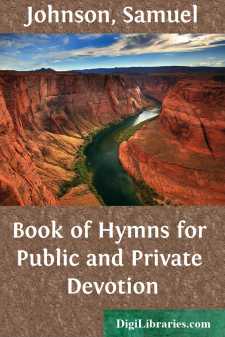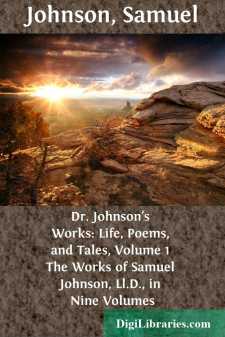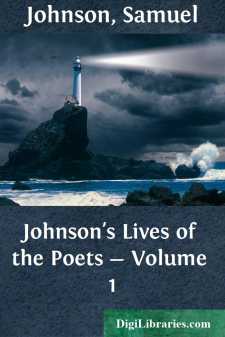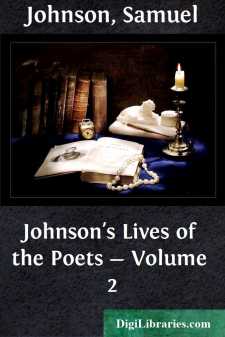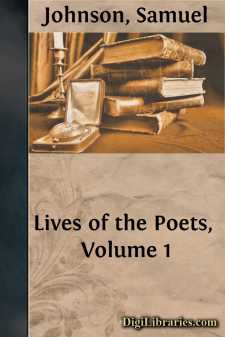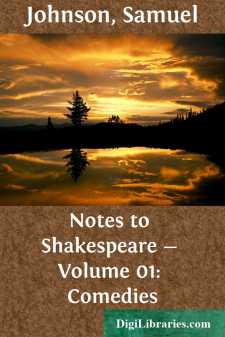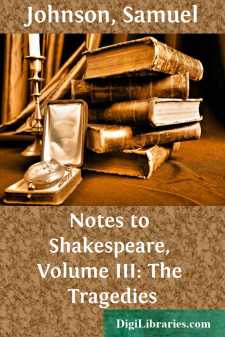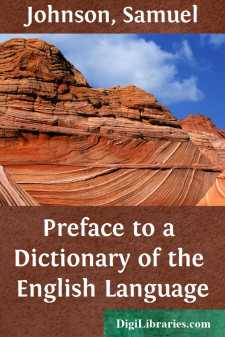Categories
- Antiques & Collectibles 13
- Architecture 36
- Art 48
- Bibles 22
- Biography & Autobiography 813
- Body, Mind & Spirit 142
- Business & Economics 28
- Children's Books 17
- Children's Fiction 14
- Computers 4
- Cooking 94
- Crafts & Hobbies 4
- Drama 346
- Education 46
- Family & Relationships 57
- Fiction 11829
- Games 19
- Gardening 17
- Health & Fitness 34
- History 1377
- House & Home 1
- Humor 147
- Juvenile Fiction 1873
- Juvenile Nonfiction 202
- Language Arts & Disciplines 88
- Law 16
- Literary Collections 686
- Literary Criticism 179
- Mathematics 13
- Medical 41
- Music 40
- Nature 179
- Non-Classifiable 1768
- Performing Arts 7
- Periodicals 1453
- Philosophy 64
- Photography 2
- Poetry 896
- Political Science 203
- Psychology 42
- Reference 154
- Religion 513
- Science 126
- Self-Help 84
- Social Science 81
- Sports & Recreation 34
- Study Aids 3
- Technology & Engineering 59
- Transportation 23
- Travel 463
- True Crime 29
Samuel Johnson
Samuel Johnson (1709–1784) was an English writer, poet, and lexicographer best known for his influential work, "A Dictionary of the English Language," published in 1755. His contributions to literature also include essays, criticism, and the famous biography "The Life of Samuel Johnson" by James Boswell, which offers a detailed and vivid portrayal of his life and character. Johnson's profound impact on English literature and language endures, marking him as one of the most significant figures of the 18th century.
Author's Books:
Sort by:
by:
Samuel Johnson
INTRODUCTION. Jeronimo Lobo was born in Lisbon in the year 1593. He entered the Order of the Jesuits at the age of sixteen. After passing through the studies by which Jesuits were trained for missionary work, which included special attention to the arts of speaking and writing, Father Lobo was sent as a missionary to India at the age of twenty-eight, in the year 1621. He reached Goa, as his book...
more...
by:
Samuel Johnson
Invitation. 1 Come to the house of prayer, O ye afflicted, come! The God of peace shall meet you there, He makes that house His home. 2 Come to the house of praise, Ye who are happy now; In sweet accord your voices raise, In kindred homage bow. 3 Ye aged, hither come, For ye have felt His love; Soon shall ye lift a holier song In fairer courts above. 4 Ye young, before His throne, Come, bow; your...
more...
by:
Samuel Johnson
AN ESSAY ON THE LIFE AND GENIUS OF SAMUEL JOHNSON, LL.D. When the works of a great writer, who has bequeathed to posterity a lasting legacy, are presented to the world, it is naturally expected that some account of his life should accompany the edition. The reader wishes to know as much as possible of the author. The circumstances that attended him, the features of his private character, his...
more...
by:
Samuel Johnson
INTRODUCTION. Johnson's "Lives of the Poets" were written to serve as Introductions to a trade edition of the works of poets whom the booksellers selected for republication. Sometimes, therefore, they dealt briefly with men in whom the public at large has long ceased to be interested. Richard Savage would be of this number if Johnson's account of his life had not secured for him...
more...
by:
Samuel Johnson
INTRODUCTION. This volume contains a record of twenty lives, of which only one—that of Edward Young—is treated at length. It completes our edition of Johnson's Lives of the Poets, from which a few only of the briefest and least important have been omitted. The eldest of the Poets here discussed were Samuel Garth, Charles Montague (Lord Halifax), and William King, who were born within the years...
more...
by:
Samuel Johnson
INCH KEITH I had desired to visit the Hebrides, or Western Islands of Scotland, so long, that I scarcely remember how the wish was originally excited; and was in the Autumn of the year 1773 induced to undertake the journey, by finding in Mr. Boswell a companion, whose acuteness would help my inquiry, and whose gaiety of conversation and civility of manners are sufficient to counteract the...
more...
by:
Samuel Johnson
Such was the simple and unpretending advertisement that announced the Lives of the English Poets; a work that gave to the British nation a new style of biography. Johnson's decided taste for this species of writing, and his familiarity with the works of those whose lives he has recorded, peculiarly fitted him for the task; but it has been denounced by some as dogmatical, and even morose; minute...
more...
by:
Samuel Johnson
Dr. Johnson's Preface to Shakespeare is one of the most famous critical essays of the eighteenth century, and yet too many students have forgotten that it is, precisely, a preface to the plays of Shakespeare, edited by Dr. Johnson himself. That is to say, the edition itself has been obscured or overshadowed by its preface, and the sustained effort of that essay has virtually monopolized scholarly...
more...
by:
Samuel Johnson
TRAGEDIES Vol. IV (392) Most of the notes which the present editor has subjoined to this play were published by him in a small pamphlet in 1745. I.i (393,*) Enter three Witches] In order to make a true estimate of the abilities and merit of a writer, it it always necessary to examine the genius of his age, and the opinions of his contemporaries. A poet who should now make the whole action of his...
more...
by:
Samuel Johnson
It is the fate of those who toil at the lower employments of life, to be rather driven by the fear of evil, than attracted by the prospect of good; to be exposed to censure, without hope of praise; to be disgraced by miscarriage, or punished for neglect, where success would have been without applause, and diligence without reward. Among these unhappy mortals is the writer of dictionaries; whom mankind...
more...



